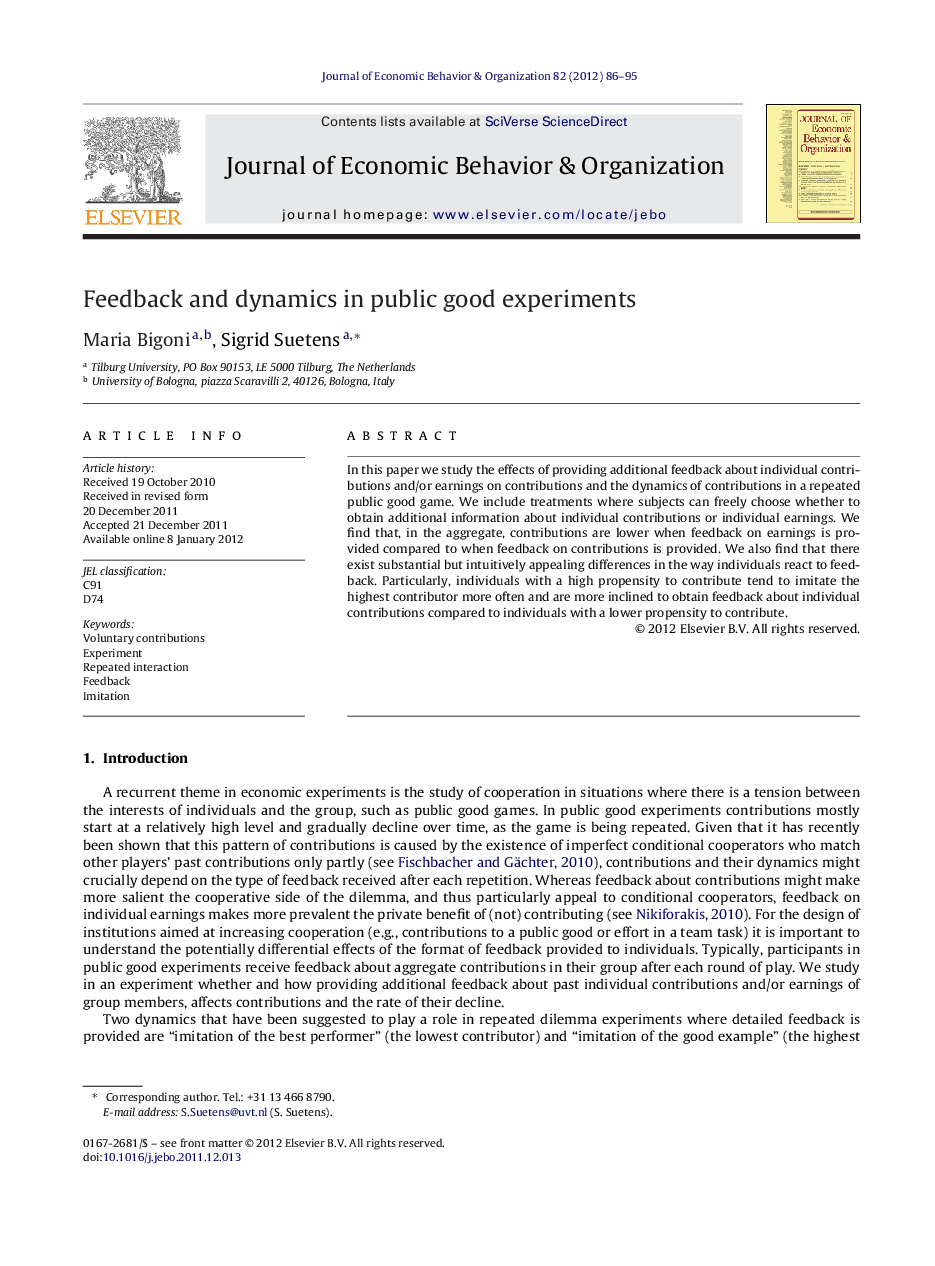| Article ID | Journal | Published Year | Pages | File Type |
|---|---|---|---|---|
| 883853 | Journal of Economic Behavior & Organization | 2012 | 10 Pages |
In this paper we study the effects of providing additional feedback about individual contributions and/or earnings on contributions and the dynamics of contributions in a repeated public good game. We include treatments where subjects can freely choose whether to obtain additional information about individual contributions or individual earnings. We find that, in the aggregate, contributions are lower when feedback on earnings is provided compared to when feedback on contributions is provided. We also find that there exist substantial but intuitively appealing differences in the way individuals react to feedback. Particularly, individuals with a high propensity to contribute tend to imitate the highest contributor more often and are more inclined to obtain feedback about individual contributions compared to individuals with a lower propensity to contribute.
► We study the effect of different types of feedback (contributions and/or earnings) on contributions and dynamics in a public good experiment. ► We find that including feedback about past earnings of group members decreases contributions and induces individuals to imitate the lowest contributor relatively more often as compared to the highest contributor. ► We find that the effects are driven by cooperative types who change the way they imitate.
